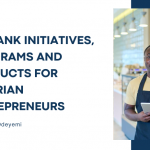A total of ₦18.6 billion was disbursed to 136,902 smallholder farmers and agribusiness-focused SMEs across Nigeria in the first quarter of 2025, reflecting a 31 percent increase from the ₦12.9 billion allocated during the same period in 2024.
The disbursement was facilitated through thet Lift Above Poverty Organisation’s (LAPO) agricultural financing arm, which focuses on supporting micro and small enterprises in rural and peri-urban communities. Operating through 341 branches across 22 states, LAPO’s agro-financing programme is designed to address key challenges facing small-scale farmers, including limited access to credit, inadequate extension services, and outdated production methods. By bridging these gaps, the organisation aims to enhance food security, stimulate rural development, and strengthen local agricultural value chains.
In a parallel effort, more than 6,000 agro-entrepreneurs in the poultry, livestock, and fisheries sectors accessed an additional ₦1 billion through LAPO’s Household Poultry and Livestock Initiative. Beyond funding, this initiative provided participants with access to improved breeds, quality feed, veterinary services, and hands-on training. These tools are essential for transitioning traditional farming systems into commercially viable and sustainable agribusinesses, particularly in underserved communities where livestock farming serves as a primary source of livelihood.
LAPO emphasised that a significant portion of the support was channelled toward women-led households and youth-driven ventures. This focus aligns with the organisation’s broader mission to promote inclusive entrepreneurship and close gender and age-related gaps in access to finance. By empowering women and young people in agriculture, LAPO is helping to build a more inclusive and resilient rural economy.
The organisation also highlighted the long-term impact of its interventions. Beneficiaries have reported improved yields, increased income, and stronger linkages to markets. In several communities, the additional financing has enabled farmers to expand their operations, adopt climate-smart practices, and hire additional labour—contributing to job creation and local economic growth.
As part of its monitoring and support strategy, LAPO maintains ongoing engagement with recipients through field visits, performance tracking, and business advisory services. These follow-up measures are aimed at ensuring effective utilisation of funds, reducing loan defaults, and supporting the sustainability of the enterprises.
LAPO’s continued investment in agricultural SMEs is seen as a vital contribution to Nigeria’s broader development goals, especially in the context of food inflation, rural poverty, and youth unemployment. By prioritising financial inclusion and capacity development, the organisation is positioning local farmers and agribusinesses to become active players in national and regional food systems.
The first-quarter achievements are part of LAPO’s long-term agricultural agenda, with further disbursements and support programs expected to be rolled out in the coming months.










